We cannot talk about our common heritage without exerting greater effort to make sure future generations are aware of it, with a particular focus on those who are not brought to European culture automatically through their upbringing or schooling. They will be among the ones who must continue to care for our heritage when we are gone ~ Cecilia Bartoli
Cecilia Bartoli’s exceptional career in the world of classical music has brought her numerous prestigious awards and honours, such as several Grammy Awards, multiple ECHO Klassik Awards and the Polar Music Prize, but also the high distinction that is the Order of Cultural Merit of the Principality of Monaco.
Speaking in this exclusive interview for CorD Magazine, the Europa Nostra president stresses that the Venice Manifesto, which was presented in the stunning setting of the Scuola Grande di San Giovanni Evangelista in Venice, will inspire and guide Europa Nostra’s action over the course of the next decade and beyond. “Today, more than ever, we need to recognise and celebrate what can bring Europe’s citizens and communities closer together. Culture – arts and heritage – are prime vectors for promoting stronger cohesion and social inclusion within our societies. We need to combat fragmentation and even hostility through solidarity and mutual support. It is for this reason that our Venice Manifesto insists that the concept of “European citizenship”, which constitutes the very foundation of the European project, cannot be reduced to its political or economic dimensions.”
Madam Bartoli, it was in May 2022 that you became the new President of Europa Nostra, the European Voice of Civil Society that’s committed to Cultural Heritage. What does this role mean to you?
— As a European citizen and someone who has dedicated most of my life to art and cultural heritage, I feel extremely privileged to have been appointed President of Europa Nostra. I accepted this honour with the greatest pride. I am also delighted to continue pursuing the work of the previous president, Plácido Domingo, for whom I have great respect, and to work hand in hand with our Executive President, Hermann Parzinger, who is an eminent heritage scholar and practitioner from Germany.
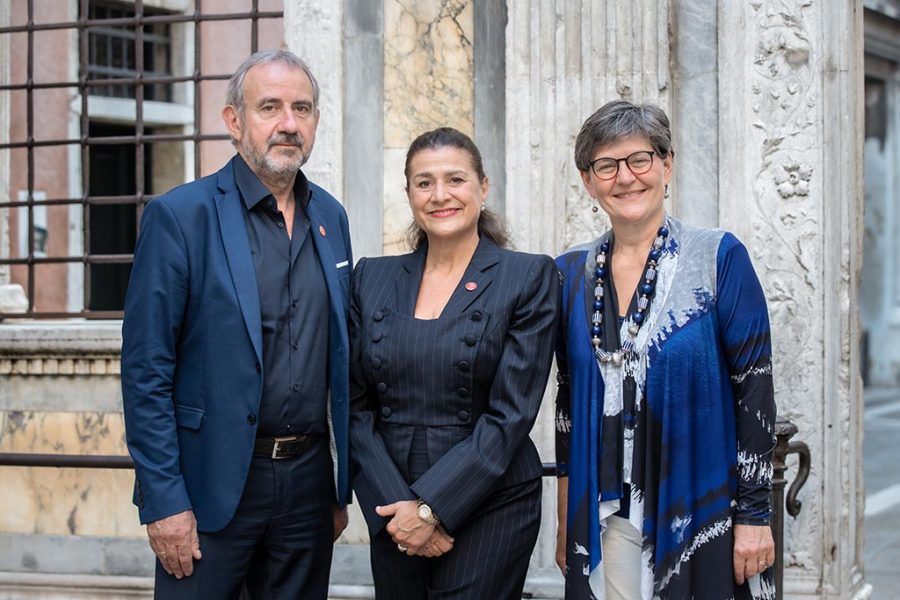
Europa Nostra is an organisation that inspires me and enriches my own work. In return, with my multifaceted experience as a performer, producer, facilitator and cultural manager, I hope to contribute to further focusing and amplifying Europa Nostra’s vision and action for the future.
What does “being European” mean to you?
— I was born in Italy, the birthplace of opera, and surrounded by music throughout my youth. Growing up in Rome allowed me to inhale the magical beauty of cultural heritage in its various forms, from architecture and sculpture to music and poetry, on a daily basis. Italy’s magnificent landscapes – its islands, mountains and plains, villages and towns, fearsome volcanoes, rugged coastlines and shiny white beaches, ancient vineyards, olive groves and canals, endless shades of blue in its lakes and surrounding seas – form part of my own cultural inheritance, to which I am intimately attached.
I am delighted to continue pursuing the work of the previous president, Plácido Domingo, for whom I have great respect, and to work hand in hand with our Executive President, Hermann Parzinger, who is an eminent heritage scholar and practitioner
This is also the case to the same extent with my country’s handicrafts, folklore or our exquisite gastronomic heritage, as well as with our more recent achievements, such as high-speed railways, elegant fashion or legendary films. This heritage profoundly marked my thinking, my feelings and my personality. Over the years, I have been fortunate to add additional cultural layers, mostly European ones, to my native one: Spanish, French, Swiss, Austrian, Monegasque and many more. They made me love and value Europe’s shared heritage, which is so utterly diverse, while at the same time so profoundly interwoven. I love Vivaldi and Handel as much as Mozart and Bizet. All this make me feel European and proud to be so. And I strongly believe that many people in Europe feel the same way.
Together with Europa Nostra, you promote the multiple values of cultural heritage as a vital resource for bridging Europe’s past, present and future, and for shaping a better quality of life for Europe’s citizens and their communities. At this time that sees Europa Nostra commemorate its diamond jubilee, what do you see as being the key priorities of the federation’s future action?
— I was so pleased last September to join Europa Nostra’s large pan-European family of members and partners in Venice for our European Cultural Heritage Summit. This was the perfect occasion to celebrate our 60th anniversary and to also reflect on present and future challenges to our action.
The choice of Venice was a deliberate one: this uniquely historic city is, in many ways, so emblematic of the mission of Europa Nostra. Historically, Venetian culture, in all its aspects, spread across Europe and the world. The city itself epitomises both the uniqueness and amazing beauty of Europe’s heritage, but also reflects its fragility and vulnerability, due to the many challenges it faces today.
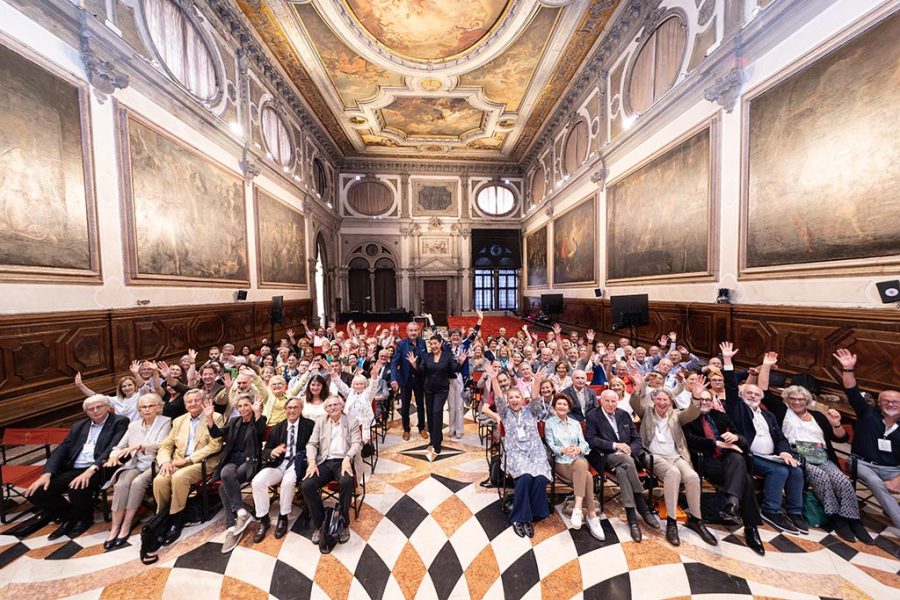
Europa Nostra, as the largest European network of civil society organisations active in the field of cultural heritage, celebrates and champions cultural heritage as a strategic resource for a better future for our Europe. Cultural heritage is the foundation of the entire European project; it is the essence of what it means to be European. If we want to achieve a more sustainable, more inclusive and more beautiful Europe, we must place culture and cultural heritage at the very heart of our strategies and priorities. Europa Nostra’s task is to become an even more forceful advocate of this key message, together with our many partners gathered around the European Heritage Hub project that is being funded by the European Union. This project includes the creation and empowerment of our new heritage hubs in Krakow, Athens, Lisbon, Nicosia and Venice, with further ones to follow.
It was during the European Cultural Heritage Summit in Venice that Europa Nostra presented its Venice Manifesto, which introduces and promotes the concept of “European cultural citizenship”. Can you tell us more about this important initiative?
— The Venice Manifesto, which was presented in the stunning setting of the Scuola Grande di San Giovanni Evangelista in Venice, will inspire and guide Europa Nostra’s action over the course of the next decade and beyond. Today, more than ever, we need to recognise and celebrate what can bring Europe’s citizens and communities closer together. Culture – arts and heritage – are prime vectors for promoting stronger cohesion and social inclusion within our societies. We need to combat fragmentation and even hostility through solidarity and mutual support. It is for this reason that our Venice Manifesto insists that the concept of “European citizenship”, which constitutes the very foundation of the European project, cannot be reduced to its political or economic dimensions. We really need to promote the concept of “European cultural citizenship”, which will help strengthen the much-needed sense of belonging to a wider European community and will foster the sense of togetherness that will help us successfully combat and overcome forces that could serve to divide Europe and its citizens.
Europa Nostra is active all over Europe, including in Serbia. What is your message to all people who care for cultural heritage in our country and in the wider Western Balkan region?
— Your country and your region are so rich in cultural heritage: built and natural, tangible and intangible. This heritage reflects millennia of European history and today represents the strongest possible anchor within the wider European family. Therefore, taking good care of this heritage and making it more widely known is crucial for the participation of your country and your region in the process of creating a space where the European spirit, which is based on our shared cultural heritage, is palpable.
Like in all countries, we are naturally aware that your priceless heritage is also often endangered by different types of threats. We stand ready to support all those who are committed to saving this heritage, for the sake of present and future generations.
Rossini is maybe the most European figure who – indirectly – won a European Heritage Award this year and should serve as a role model for all of us!
We are delighted that the integrated conservation of the Bač Fortress received one of our Grand Prix awards back in 2018, when we celebrated the European Year of Cultural Heritage. I am delighted that the person who was responsible for the coordination of this outstanding project, Slavica Vujović, has recently been appointed the new President of Europa Nostra Serbia. We wish her and the entire team of Europa Nostra Serbia, led by Secretary General Vesna Marjanović, every success in pursuing the pioneering and visionary work that was led during the last 25 years by Professor Irina Subotić, who was also a highly regarded Vice-President of Europa Nostra and has become an Honorary Life Member of Europa Nostra.
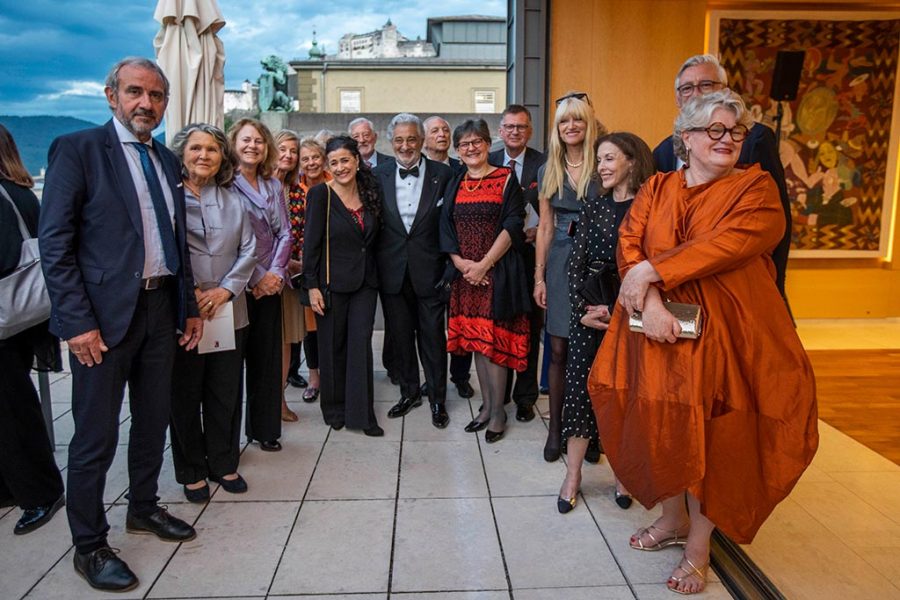
Last but not least, let me highlight the key role played by our Secretary General, Sneška Quaedvlieg-Mihailović, who was born and raised in Belgrade. She has spent more than 30 years working tirelessly, passionately and forcefully to enlarge and strengthen Europa Nostra’s network all over Europe, including in your region. At this moment when we are celebrating the 60th anniversary of Europa Nostra, we are indebted to her leadership and unwavering commitment to the Europe of Culture and the Europe of Values, which are at the core of the mission that’s promoted by our organisation.
It was in Venice that Europa Nostra, together with the European Union, presented this year’s European Heritage Awards/Europa Nostra Awards, which are considered the European Oscars of Cultural Heritage. One of those awards went to Italian musicologist Sergio Ragni in recognition of his many decades of dedication to the life and work of famous European composer Gioachino Rossini. Being a celebrated opera singer and performer of Rossini’s works, this award certainly warmed your heart?
— All winners of our European Heritage Awards warmed my heart and the hearts of so many of our members and partners who had the privilege of attending Europa Nostra’s award ceremony at the iconic Palazzo del Cinema on the Lido in Venice. These winners cover so many aspects of our heritage: from architectural gems to archaeological treasures; from magical gardens to stunning coastlines and other examples of cultural landscapes; from museums and handicrafts to our musical heritage and other aspects of Europe’s intangible heritage.
Of course, I was particularly happy to see Sergio Ragni appearing on the stage to receive his own award in the category of Heritage Champions.
Rossini is not only one of my favourite composers, who also propelled my career forward from the very beginning, he is also a truly European figure: as a musician, as someone who furthered talent, as an influential arts administrator and a respected figure with connections to the most important political figures of his day. His music was played all over Europe – but also in North America and Russia! – it united artists, audiences and all kinds of social layers in a spirit of community and enthusiasm. Rossini is maybe the most European figure who – indirectly – won a European Heritage Award this year and should serve as a role model for all of us!
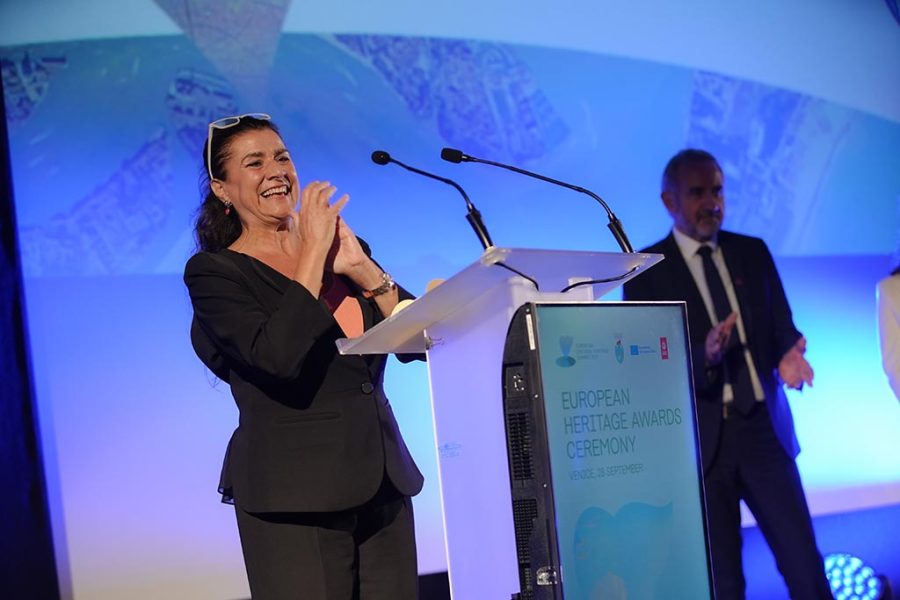
I am so happy for this high European recognition for Sergio Ragni, whose work with and for Rossini I have admired for many years. He has done this out of pure passion for decades, and has invested large amounts of money and time into this – while making it all available for free to the general public. Go and visit his museum in Naples, or consult his editions of Rossini’s letters and writings when you have a chance! I very much hope that our European Heritage Award will give further visibility to the work of Sergio Ragni and his Rossini collection, leading to a lasting solution to make this work and collection more widely accessible to all musicians, scholars and Rossini lovers today and in the future.
Your own passion for reviving forgotten operatic treasures is wellknown. You’ve explored a wide range of musical styles and historical periods. Are there any uncharted territories or projects you’d like to explore in your future career?
— It has indeed given me great joy to give new life to forgotten musical gems that I found in archives all over Europe, by bringing them to new audiences of the 20th and 21st centuries. At the same time, I want to share with people what I learned about the lives of great composers and singers of those times, such as famous 18th-century castrato singer Farinelli, and the unique 19th century opera diva and multifaceted artist Pauline Garcia-Viardot and her incredible family, who changed so much of Europe’s cultural and social life.
Classical music builds on communion, giving and taking, shades and colours, soft and differentiated sounds. Classical music exhilarates, providing joy and comfort
Of course, there are today also new projects that occupy my mind, but they sometimes take years to materialise or get discarded along the way. But what I would like to explore in the future – in collaboration with Europa Nostra, among others – is a new project in which music is utilised to further social inclusion in deprived areas. We cannot talk about our common heritage without exerting greater efforts to make sure future generations are aware of it, with a particular focus on those who are not brought to European culture automatically through their upbringing or schooling. They will be among the ones who must continue to care for our heritage when we are gone.
Your exceptional career in the world of classical music has earned you numerous prestigious awards and honours. How important are such public acknowledgements to an artist?
— For me, public recognition is a sign that my voice has been heard, and that the things I feel passionate about and find worthy of bringing to public attention have reached an audience and also met with their enthusiasm. In this sense, they are encouraging and I am most grateful for them.
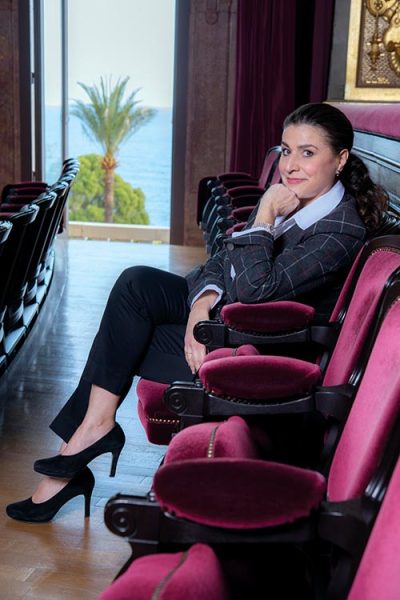
But it is absolutely vital to awaken the interest of young people in culture, and to help them in their professional career. The Cecilia Bartoli – Music Foundation does this through projects like the CD label „mentored by Bartoli“, or the opera academies we just launched in Monte-Carlo.
Your dedication to educating and mentoring talented youngsters is admirable. This will not be the first time that you’ve been asked how you see the future of opera and classical music in general, in our world of new media and modern technologies?
— I always say that, having survived more than 400 years until now, opera will surely survive a little longer. And classical music is, of course, far older and more diverse. I invite people to open their hearts and minds and take their time to discover it. It is such an immensely wide and varied field that everyone will find something in it that fascinates or moves them!
In light of the great many challenges that have confronted, and continue to confront, Europe and the world, what are your hopes for 2024?
— I hope people will listen to and play more music, especially classical music. Classical music builds on communion, giving and taking, shades and colours, soft and differentiated sounds. Classical music exhilarates, providing joy and comfort. I also hope that people will, more than anything, listen to one another carefully and respectfully.
| PRIDE I love Vivaldi and Handel as much as Mozart and Bizet. All this makes me feel European and proud to be so. And I strongly believe that many people in Europe feel the same way | BAČ FORTRESS We are delighted that the integrated conservation of the Bač Fortress received one of our Grand Prix awards back in 2018, when we celebrated the European Year of Cultural Heritage | PRIORITY If we want to achieve a more sustainable, more inclusive and more beautiful Europe, we must place culture and cultural heritage at the very heart of our strategies and priorities |
|---|
Photo: Uli Weber/Decca